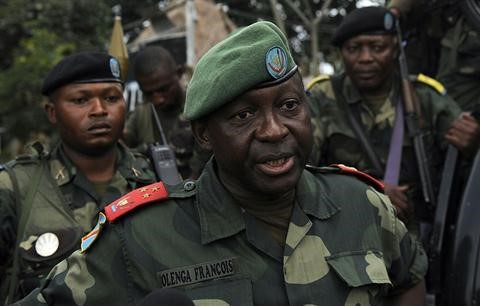 A Tanzanian-led U.N. intervention brigade is in the process of entering the eastern Congolese province of North Kivu. The 2,500-strong brigade will include troops from South Africa and Malawi. Meanwhile, the armed forces of the Democratic Republic of the Congo are preparing to support the peacekeepers while Congolese rebel group M23 is preparing to thwart them. The mandate of the U.N. campaign is to disarm all rebel groups in North Kivu, and the campaign is expected to start within the next two months. Achieving the disarmament will be difficult due to the relatively small size of the intervention force, logistical difficulties and resistance from rebel groups like M23. Still, the intervention could influence external supporters of the rebels.
A Tanzanian-led U.N. intervention brigade is in the process of entering the eastern Congolese province of North Kivu. The 2,500-strong brigade will include troops from South Africa and Malawi. Meanwhile, the armed forces of the Democratic Republic of the Congo are preparing to support the peacekeepers while Congolese rebel group M23 is preparing to thwart them. The mandate of the U.N. campaign is to disarm all rebel groups in North Kivu, and the campaign is expected to start within the next two months. Achieving the disarmament will be difficult due to the relatively small size of the intervention force, logistical difficulties and resistance from rebel groups like M23. Still, the intervention could influence external supporters of the rebels.
M23 rebel leaders have said that they have begun planning to disrupt the intervention by targeting U.N. logistical convoys and patrols. Only about 870 of the U.N. troops have arrived in Goma, allowing rebel forces time to prepare a response. Speed aside, the small U.N. brigade will find it hard to respond to the rebels' mobility and knowledge of the terrain in North Kivu to avoid direct confrontation. But predecessor rebel groups to M23 survived even conventional confrontations against much larger government campaigns.
M23 has previously initiated attacks aimed at capturing advantageous terrain. Rebels over the last weeks have fought for high ground dominating the territory around the regional capital, Goma. This position would allow the rebels to threaten both the city and its airport, where the intervention force is assembling. Congolese armed forces have attempted to safeguard the arrival of the U.N. brigade by recapturing positions on the hills surrounding the city. By May 31, government forces had retaken the village of Mutaho, where M23 had placed artillery pieces aimed at Goma airport. Congolese forces will likely assist the intervention, but they have been fighting M23 and other rebel groups for many years with little success. Still, the government numbers will be used to augment what is supposed to be a more capable foreign force.
The full intervention brigade will consist of three infantry battalions, an artillery and a reconnaissance company and a special operations forces element. South Africa has suggested it could provide air support, and several of its Gripen fighters and Rooivalk attack helicopters reportedly were spotted at an airport near Kinshasa several months ago.
The intervention will only be able to operate in a limited amount of territory. The remote region of North Kivu constitutes almost 60,000 square kilometers (about 37,000 square miles), a similar size to the U.S. state of West Virginia, and is made up of heavily forested hills that shelter numerous rebel groups -- of which M23 constitutes less than a third. If the U.N. force chooses to operate too far from Goma, it will stretch out its supply lines, opening them up to rebel attacks. The use of unmanned aerial vehicles, aerial reconnaissance and close air support could extend the reach of the intervening forces. But the U.N. force will still face the temptation to take up positions and patrol only in the immediate vicinity of Goma, preventing it from confronting M23 and other rebels in their strongholds.
As both sides are making military preparations, M23 has also been trying to establish itself as a legitimate negotiating partner. Over the last months it has continued to ask to return to negotiations in Kampala. It initially withdrew from Goma in late 2012 to facilitate the initiation of these negotiations. This may cause the group to show restraint, as long as the U.N. brigade does not challenge it too aggressively.
The current crisis in North Kivu has withstood all attempts at a negotiated solution. Congolese President Joseph Kabila finds a military solution preferable in any event, since previous concessions to the rebels have put him at odds with his military and his political allies.
Mandates for offensive military operations have been delivered throughout the U.N.'s existence; this one was not required under international law since the host country is inviting the intervention brigade. While the rebels have demonstrated a capability to withstand far larger offensives by the Congolese military, the presence of the U.N. brigade could cut the rebels off from some of their resources -- weakening their position in the long term. Deploying a U.N. force on the frontline, actively engaged in combat with M23, also raises the risk of repercussions for Rwanda and to a certain extent Uganda if they both continue to support the rebels. Directly supporting the rebels fighting U.N. forces could lead to the threatened sanctions against Rwanda and Uganda over their support to the Congolese rebels.
Courtesy : Stratfor (www.stratfor.com)